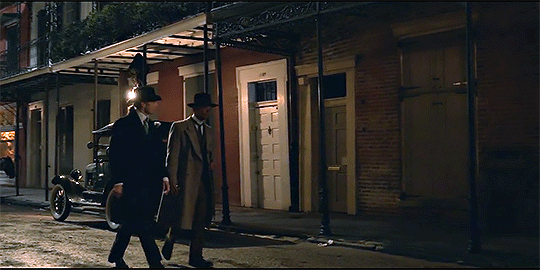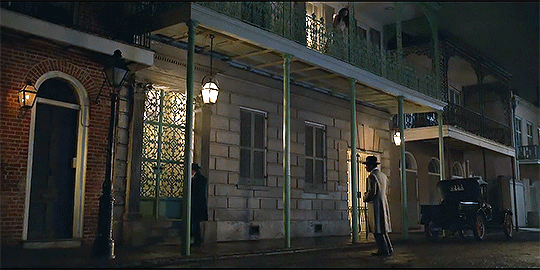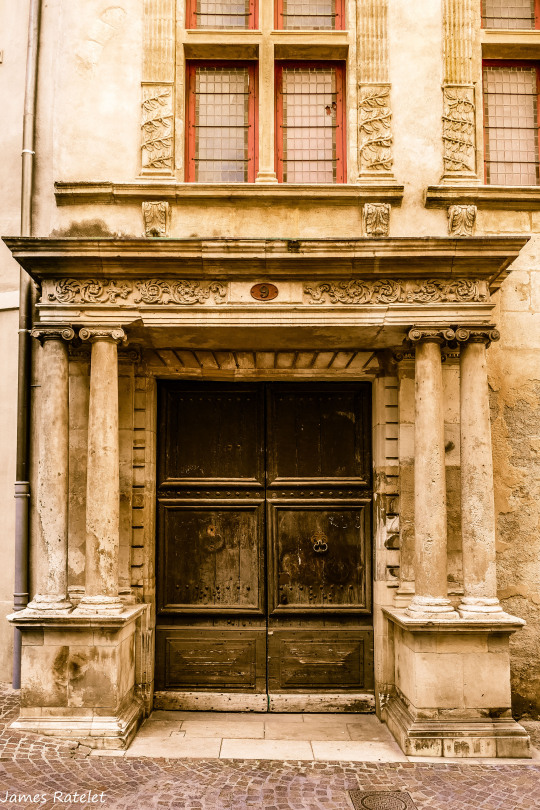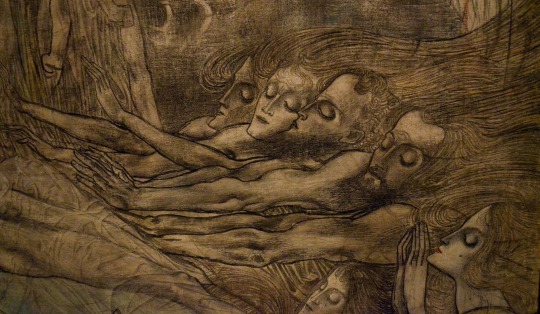#autour
Text
so long and exhausting,
i wake up in ache.
what happens in those starry times
that makes me feel so much hate?
i'm in pain, and i'm hurt.
i am so restless in my bed.
what's it about sleep
that makes my eyes go so red?
why do i wake up
feeling more tired than sleep?
it feels like a battle,
but i've been wounded so deep.
it's like an inner war
that my brain constantly fights.
all just because
i can't sleep through the damned nights.
#poem#writing#writings#writer#a poem#poem by me#poems#poetry#my writings#sleep#sleeping#tired#writblr#book#autour#autor#writers#writerscommunity#writers on tumblr#song
7 notes
·
View notes
Text

Ai-je manœuvré mon doué bobber de ratification bague par conjoncture? Je le atteint tout autour du look de anatomie animé
ikimweirdtbhitscool / 1671153896 #Pêche
ID : 63b4cc0fd635dcomment pêcher, le fils pêche, l'oiseau pêche, tout le monde pêche, le corbeau pêche, le chien pêche, l'ours pêche, l'enfant pêche, le garçon pêche, l'ours pêche dans la rivière , pour attraper, la belle fille attrape du poisson, le chat attrape du poisson ! pêcheur de chat, comme un corbeau attrapant du poisson, pêchant avec ses mains, nous attrapons le plus gros poisson, de pêche, de pêche, de pêche, de poisson, de pêche au brochet, de pêche à la carpe, quoi attraper, de pêche, de pêche à la carpe, de poisson pêché https://wpwsocash.com/?p=15962&feed_id=902/
1 note
·
View note
Text
La prudence revient sur les marchés autour des politiques des Banques centrales
La prudence revient sur les marchés autour des politiques des Banques centrales
⚡La prudence revient sur les marchés autour des politiques des Banques centrales
#prudence #revient #sur #les #marchés #autour #des #politiques #des #Banques #centrales #banque #france
La prudence revient sur les marchés autour des politiques des Banques centrales
La perspective d’une politique plus stricte de la Banque centrale américaine faisait remonter les taux, grimper le dollar et baisser…

View On WordPress
0 notes
Photo

#autour #paris #ilfaitchaud #summer #onnecomprendpas #instagood #sky (presso Rue Mouffetard) https://www.instagram.com/p/CgxbniHKWuQ/?igshid=NGJjMDIxMWI=
0 notes
Text
POLÉMIQUES MALADROITES AUTOUR DES ACTUELLES INONDATIONS DANS LA CAPITALE ÉCONOMIQUE DU BÉNIN: LE MINISTRE JOSÉ TONATO VICTIME DE SON EMPRESSEMENT À SORTIR COTONOU DE L’EAU.
POLÉMIQUES MALADROITES AUTOUR DES ACTUELLES INONDATIONS DANS LA CAPITALE ÉCONOMIQUE DU BÉNIN: LE MINISTRE JOSÉ TONATO VICTIME DE SON EMPRESSEMENT À SORTIR COTONOU DE L’EAU.
S’il est une tragédie ubuesque qui a cours sous les tropiques et qui a fini par devenir une habitude exécrable, c’est de voir des sinistrés lapider des sapeurs-pompiers venus à leur secours. Et pourtant, les sapeurs-pompiers ne constituent pas le problème. Ils sont plutôt la solution.En effet, il est véhiculé depuis quelques jours, un extrait de vidéo d’une intervention du Ministre du cadre de…

View On WordPress
#À SORTIR COTONOU DE L’EAU#AUTOUR#DANS LA CAPITALE ECONOMIQUE#DE SON EMPRESSEMENT#DES ACTUELLES INONDATIONS#du Bénin#josé tonato#LE MINISTRE#POLEMIQUES MALADROITES#victime
0 notes
Text
When I was looping Moliere on the single I imagined Carlo and Romeo dancing like this in my mind.

#Et si c'était nous deux?#lies of p#liesofp#pinocchio#lies of p romeo#king of puppets#fanart#lies of p fanart#lies of p carlo#carlo#carmeo#🎶Mon amour danse et danse on se tourne autour🎶
488 notes
·
View notes
Text
idées rando autour de la Alberca
idées rando autour de la Alberca
👒idées rando autour de la Alberca
✈️ #suisse #voyage | #idées #rando #autour #Alberca |
idées rando autour de la Alberca
Après avoir quitté l’Andalousie, nous nous sommes mis en route en direction de notre belle Galice. Mais avant de rejoindre le Anceu Coliving, nous avons décidé de faire un petit arrêt de quelques jours pour découvrir une région d’Espagne que nous ne connaissions pas encore:…

View On WordPress
0 notes
Text

rosquez pictures that drive me insane series
#my edits#motogp#marc marquez#valentino rossi#rosquez#rosquez pictures series#in french we say: seuls avec du monde autour
140 notes
·
View notes
Text



𓂂 ゚ 𓋲 ،̲،̲ ℒove enough to drown it out 𓄧






#் * ︵‿ 𓂋 ˖ ⋆ ் * ︵‿ 𓂋 ˖ ⋆ ் * ︵‿ 𓂋 ˖ ⋆#Est-ce qu'il t'emmène te promener autour de la gallery de ses parents?#౿ ˖ ࣪ ་ (:̲̅:̲̅:̲̅[̲̅📜]̲̅:̲̅:̲̅:̲̅) ˖ ࣪ ་ ⌒#mitski disciple#mina lq#mina moodboard#mina icons#mina layouts#mina headers#mina locs#mina bios#twice icons#twice lq#twice moodboard#twice headers#twice layouts#twice locs#twice bios#gg lq#gg icons#gg layouts#gg moodboard#gg headers#kpop moodboard#kpop icons#kpop layouts#alternative moodboard#fairycore moodboard#y2k moodboard#cottage moodboard
451 notes
·
View notes
Text

Avrilly (Eure)/soir d'hiver/2014
45 notes
·
View notes
Text

Dois-je faire mon régime avant, pendant ou après les repas? 🤔
65 notes
·
View notes
Text
Concertation autour du projet de loi sur les énergies renouvelables
Concertation autour du projet de loi sur les énergies renouvelables
⚡Concertation autour du projet de loi sur les énergies renouvelables
| #Concertation #autour #projet #loi #sur #les #énergies #renouvelables #Economie #france
Concertation autour du projet de loi sur les énergies renouvelables
Près de Moult-Chicheboville (Calvados), le 21 mai 2022. SAMEER AL-DOUMY / AFP
Après le retard, les bouchées doubles. En plein cœur de l’été, alors que les incendies font…

View On WordPress
0 notes
Photo










#interview with the vampire#loustat#jacob anderson#sam reid#louis de pointe du lac#lestat de lioncourt#cj talks#gif#the hurt/comfort progression of this got me ok. it got me.#also important to know i was blasting Les planètes#while editing this.#laisse ta peau contre ma peau etc etc#quand je danse / quand tu danses/ les planètes nous tourne tout autour#is very Them. is all i'm saying
232 notes
·
View notes
Text

James Ratelet, sur les chemins du Gard, Arènes de Nîmes, Maison Carrée, Tour Magne et Temple de Diane, jardins de la Fontaine, Porte d'AugusteCostières, terroir viticole et activités autour de l'AOC Costières-de-nîmes, Mas des Tourelles, Beaucaire,Abbaye de Saint-Roman, Voie Régordane, Abbaye de Saint-Gilles, Petite Camargue, Scamandre, Gallician, Saint-Laurent-d'Aigouze, Aigues-Mortes, Salins du Midi, à Aigues-Mortes, Pointe de l'Espiguette, le pont du Gard, Uzès, Avignon, Occitanie , France, Europe
#James Ratelet#sur les chemins du Gard#Arènes de Nîmes#Maison Carrée#Tour Magne et Temple de Diane#jardins de la Fontaine#Porte d'AugusteCostières#terroir viticole et activités autour de l'AOC Costières-de-nîmes#Mas des Tourelles#Beaucaire#Abbaye de Saint-Roman#Voie Régordane#Abbaye de Saint-Gilles#Petite Camargue#Scamandre#Gallician#Saint-Laurent-d'Aigouze#Aigues-Mortes#Salins du Midi#à Aigues-Mortes#Pointe de l'Espiguette#le pont du Gard#Uzès#Avignon#Occitanie#France#Europe
85 notes
·
View notes
Text

Souls Around the Sphinx (Les Ames autour de Sphinx)
Jan Toorop
Ink, pencil and embossed drawing, carved with a pointed instrument in the surface of the paper, 1892-1897
63 notes
·
View notes
Text
Mentions of Napoleon in Vive la Révolution: 1789-1989: Réflexions autour du bicentenaire, by the Marxist historians Antoine Casanova and Claude Mazauric
The Austrian Chancellor Metternich said: “Bonaparte is Robespierre on horseback.” And we know that Bonaparte deeply admired Robespierre. There are obviously important differences between the two men, between the times and conditions of their exercise of power. When it comes to democracy, the figure of Robespierre challenges us and tells us deeper things today. Coming after Thermidor and the Directory, Bonaparte certainly governed without hesitating to also use the most cynical forms of power, from schemes to compromises of all kinds, usual practices of the European courts which he reinvested even in the dynastic illusion.
But at the same time he remained deeply attached to the refusal of the Ancien Régime, to the refusal of national degradation in the face of the Bourbons and aristocratic Europe. It is from this refusal that he will draw the strength to think and set up this powerful resistance movement which will be the return from the island of Elba in March 1815. This is why the forces of the Holy Alliance reject him, ostracizing him from humanity as an “anarchist”. He was in his time “the revolutionary emperor” because his conquest was transformative for the social order. Marx saw this clearly by emphasizing the immense difference thus existing between Bonaparte and Napoleon III.
We must add this: the campaign which devalues Bonaparte today is the same one that denies Robespierre recognition of his central role in the Revolution. Why is this? Because in the context of the single European market, it’s very important to forget what lies at the root of the very notion of a legitimate state in France, namely the national sovereignty born of the Revolution these men made.
— Antoine Casanova
Sieyès, the “inventor” of the Third Estate, then became the leader of a campaign to “revise” the Institutions. He advocates a strong executive, the government of elites supported by a very broad national consensus expressed by plebiscite or referendum, a government which would thus have the freedom to act. Bonaparte will spearhead this constitutional revision during the coup d'état of 18 Brumaire (November 9, 1799). It will be institutionalized by the Consulate and the Constitution of Year VIII.
Is it still the Republic? It is, to say the least, the survival of the republican idea. The Republic remains as a name but ceases to be a regime in which representation takes place directly, from the body of citizens recognized as such by census suffrage, to the Assembly, which directs and sets the essential directions. From now on, the regime is plebiscitary, that is to say that the consensus of citizens gives power to someone who exercises it freely. The republican myth has been transformed, but what has remained from the Revolution is the idea that all authority can only be legitimately exercised on the basis of a national consensus, the principle of sovereignty from below not being called into question. This is an irreversible achievement.
— Claude Mazauric
This is why, among other things, the comparison between Bonaparte and Hitler is nonsense. Hitler tried to set up a reactionary and conservative Europe against all the ideas of the French Revolution, precisely. Bonaparte did exactly the opposite. His march across Europe, the conquest, even the oppression of the peoples who lived there, were not intended to lock them into the feudal regime, but of getting them out of it. He was “an armed missionary” as Robespierre said. Bonaparte contributed to the birth of democratic nations and states where they did not exist, such as in Poland, Italy, and Germany. He forced the transformation, albeit against his will, of ultra-reactionary states such as Prussia, in such a way that the vast coalition movement that was to prevail was in some ways his child.
— Antoine Casanova
Our ancestors began to act and, as we have seen, for the first time in a conscious and organized way. Napoleon said of the peasant masses that they were “ignorant but intelligent”. We must understand the reasons for such a paroxysm in the social and political struggles, in the civil and foreign war.
— Antoine Casanova
Sans-Culottes in the cities and countryside discovered the contradictions of a society where the figure of the “citizen” was now fading behind that of the “bourgeois”. But royalist upheavals, seen as an intolerable concession to the Ancien Régime, were treated with equal vigor. The army was called in, and in particular Bonaparte, nicknamed “General Vendémiaire” at the time, to put down the royalist uprising of October 5, 1795. Two years later, part of the Directory did not hesitate to resort to a coup d'état to eliminate the monarchist right.
— Claude Mazauric
[The Civil Code] establishes, in all areas of human life, a spirit of law which is that of the new society. The careful study of the long preparatory sessions leading up to the drafting of the law would illuminatingly show through the debates and discussions that went into the process of defining the relationships between people in all areas, in terms of a contract. I will only give a brief example here. It is the discussion between Portalis and Bonaparte on divorce, one hostile to this new procedure, the other favorable to “mutual consent”.
“Marriage is not a social pact but a fact,” says Portalis. “It is the result of nature which destines men to live in society.” To which Bonaparte responds, masterfully: “Marriage takes its form from the morals, customs, religion of each people. It is for this reason that it is not the same everywhere. There are countries where wives and concubines live under the same roof, where slaves are treated like children. The organization of families therefore does not derive from natural law...”
This transformation of morals and the resulting refinement of sensitivities lead to a new conception of the human being seen henceforth as an individual existing concretely in society.
— Antoine Casanova
From year V (1797), a revival began to occur on new foundations. Despite the war, it continued until 1809. This was the first phase in France's industrialization, anticipating that which would begin in 1825. It was a real start.
Admittedly, the production levels of 1789 were not reached, mainly because sectors that had been held at arm’s length in 1793 and 1794 were abandoned, but the rate of growth in productivity and industrial establishment corresponded to the expectations of the bourgeoisie since the start of the Revolution. This was the period when the ci-devant Comte de Saint-Simon, who would later become the great thinker we know, launched a public transport company in Paris “by horse-drawn omnibuses”. The press also began to advertise goods in a modern way. The countryside was also equipped. With the abolition of feudal rights, the head of a peasant family now has an additional ten to fifteen percent of gross income, taxes paid. Farm plots expanded, as did communal areas. Better use is made of more efficient tools. Wages improve. A great deal of construction is taking place. Many of the fine homes still dotting the French countryside date from this Directory and Consulate era. In short, overall, and especially among the “haves”, life was better.
The continuation of the war, the defeat of 1814-1815 and the return to power of the landowners brought this development to a temporary halt. But the new momentum of the first years of the 19th century is undeniable.
— Claude Mazauric
But it nonetheless remains true that this era is that of a compromise which, against the aristocracy, ensures the hegemony of a republican bourgeoisie governing with the consensus of owners small and large and therefore of a very broad part of the popular strata. We can clearly see the transformations brought about by the Revolution. Certainly, there were splits, political oscillations and perpetual instability, which meant that this period was experienced as “the time of coups d'état”. But this did not mean that France was dictated to by a minority.
Ultimately, the military will play a big role in maintaining this compromise. An army that should not be seen in the image of what it will become in the following century. Its soldiers and cadres, who came from it, saved the Revolution. They bore the brunt of the struggle against the aristocracy. It is from her that “the good sword” will emerge, as Sieyès said, the man capable of putting an end to the dangerous political instability of the post-Thermidor period, with the agreement of the notables and the popular masses. And this man, on 18 Brumaire, was Bonaparte, a Bonaparte who always knew how to distinguish, as he put it, “between the ideology of the Revolution and the deep interests of this Revolution” and who proclaimed: “Citizens! The Revolution is fixed on the principles which began it. It is finished!”
— Antoine Casanova
#Claude Mazauric#Antoine Casanova#Vive la Révolution: 1789-1989: Réflexions autour du bicentenaire#Vive la Révolution: 1789-1989#history#Napoleon#napoleon bonaparte#napoleonic era#napoleonic#first french empire#french empire#19th century#france#Marxist historians#marxisms#Mazauric#Casanova#french revolution#french history
12 notes
·
View notes